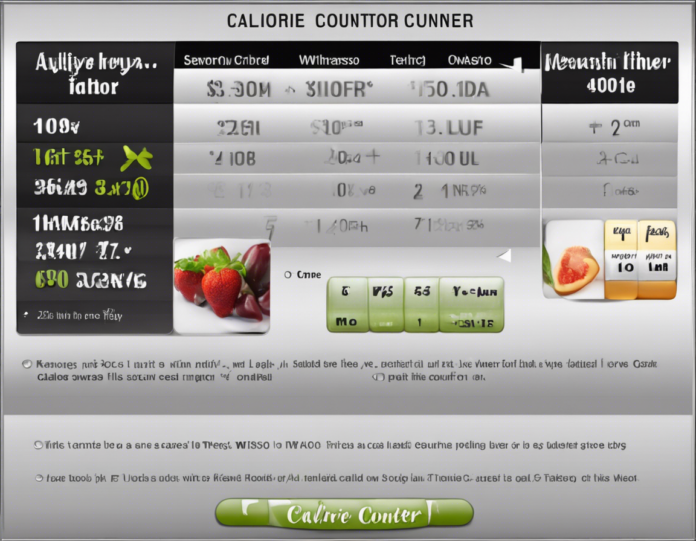Introduction
Living a healthy lifestyle involves many factors, with diet being a crucial component. Counting calories is a well-known method for managing weight and ensuring proper nutrition. In Owasso, a city in Oklahoma with a growing focus on health and wellness, having a solid understanding of calorie counting can be incredibly beneficial. This guide aims to provide a comprehensive overview of calorie counting, its importance, how to do it effectively, and tips for success in Owasso or any other location.
What Are Calories and Why Do They Matter?
Calories are units of energy that come from the food and drinks we consume. Our bodies need these calories to function – for physical activity, basic metabolic processes, and simply staying alive. Consuming more calories than our bodies can burn leads to weight gain, while burning more calories than we consume results in weight loss. Understanding and managing calorie intake is essential for weight management, overall health, and well-being.
How to Count Calories Effectively
-
Calculate your Basal Metabolic Rate (BMR): This is the number of calories your body needs to maintain basic functions at rest. It forms the basis for determining your daily calorie needs.
-
Determine your Activity Level: Take into account how active you are during the day to adjust your calorie needs. Sedentary individuals require fewer calories than those who are highly active.
-
Set Your Goal: Whether you aim to lose, maintain, or gain weight, establish a calorie target based on your BMR and activity level. A deficit of 500 calories per day typically results in a safe and sustainable weight loss of about one pound per week.
-
Track Your Intake: Use a food journal, app, or online tool to monitor the calories you consume. Be accurate in measuring portions and ingredients for best results.
-
Be Mindful of Nutrient Quality: While calories are important, so is the nutritional value of the foods you eat. Focus on whole, unprocessed foods for overall health benefits.
Tips for Successful Calorie Counting
-
Read Labels: Pay attention to serving sizes and portions when reading nutrition labels.
-
Plan Ahead: Preparing meals in advance can help you stick to your calorie goals and avoid impulsive, high-calorie choices.
-
Stay Hydrated: Sometimes thirst can be mistaken for hunger. Drink water throughout the day to prevent unnecessary snacking.
Challenges and Solutions
Counting calories can sometimes be challenging, especially in social situations or when eating out. However, there are solutions to common obstacles:
-
Estimating Portions: Use comparison techniques (e.g., a serving of meat is about the size of a deck of cards) to estimate portions when exact measurements are not possible.
-
Restaurant Dining: Look up menus and nutritional information online before going out to make informed choices. Opt for grilled, steamed, or broiled dishes over fried options.
Calories and Exercise
In Owasso, where outdoor activities and sports are popular, combining calorie counting with exercise can enhance health results. By creating a calorie deficit through diet and burning extra calories through physical activity, individuals can achieve their weight goals more effectively. Remember to refuel with healthy foods after exercise to support recovery and energy levels.
Final Thoughts
Calorie counting is a valuable tool for weight management and overall health. In Owasso, where health and wellness are priorities for many residents, understanding how to count calories effectively can make a significant difference in achieving fitness goals. By being mindful of calorie intake, making informed food choices, and staying active, individuals in Owasso can lead healthier, more balanced lifestyles.
FAQs
-
Is calorie counting the best way to lose weight?
Calorie counting, when done accurately and in conjunction with a balanced diet and regular exercise, can be an effective method for weight loss. -
What are empty calories?
Empty calories refer to foods and drinks that provide excess calories but minimal nutritional value, such as sugary snacks and sodas. -
Can I eat anything as long as it fits my daily calorie goal?
While staying within your calorie target is important, focusing on nutrient-dense foods is crucial for overall health and well-being. -
Do all calories affect the body the same way?
Calories from different sources can have varying effects on metabolism and overall health. For example, calories from refined sugars may impact the body differently than those from whole grains or lean proteins. -
How can I accurately track calories when eating out?
Many restaurants provide nutritional information on their menus or websites. When this information is not available, opt for simpler dishes with clear ingredients to estimate calorie content more easily.












